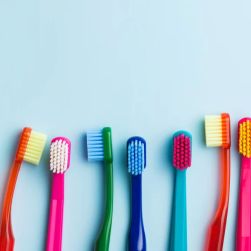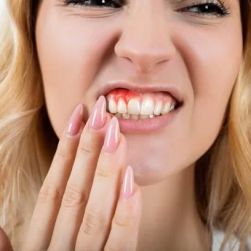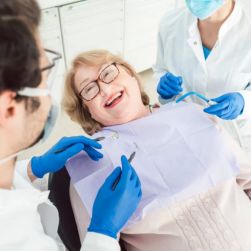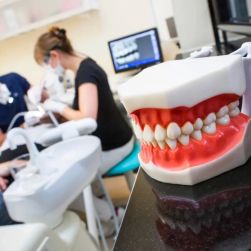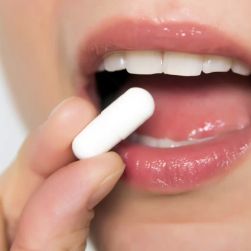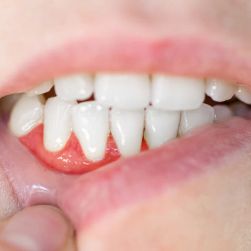When Is the Right Age for Kids to Start Using Mouthwash?
As a parent, one of the most common questions I’ve found myself asking is: when should my kids start using mouthwash? It’s a question that many of us wonder about as our children begin developing their oral hygiene routines. While brushing and flossing are always the primary focus, mouthwash can play a key role in maintaining good dental health as well. But how do you know when it's the right time to introduce mouthwash into their routine? And which mouthwash is best suited for them? Let's dive in and explore the when, why, and how of mouthwash use for kids.
1. The Benefits of Mouthwash for Kids
Mouthwash isn't just for adults or people who have specific dental issues. In fact, when used correctly, mouthwash can help kids by:
- Freshening breath – Mouthwash helps freshen breath and removes bacteria that can cause bad odor, especially after eating.
- Preventing cavities – Fluoride mouthwash can help strengthen enamel and prevent cavities, an essential consideration for kids who are still getting the hang of brushing properly.
- Reducing plaque and bacteria – Mouthwash helps rinse away food particles and bacteria that may not be fully removed by brushing alone.
- Promoting healthy gums – Some mouthwashes can help reduce the risk of gum disease, which can develop if bacteria are allowed to build up along the gum line.
2. When Can Kids Start Using Mouthwash?
Many parents wonder about the appropriate age to introduce mouthwash. The answer isn’t as straightforward as a single number, because it depends on several factors such as the child’s ability to spit out the liquid and whether they can properly handle the mouthwash without swallowing it. For most kids, the appropriate age is typically around 6-7 years old, but this can vary from child to child.
One of the main concerns with younger children using mouthwash is the potential for swallowing it. Most mouthwash formulas contain fluoride or other active ingredients that should not be ingested in large amounts. If your child is unable to spit out the mouthwash effectively, it’s best to wait until they are older and can follow the instructions properly.
3. Choosing the Right Mouthwash for Kids
Not all mouthwashes are created equal, especially when it comes to children. When choosing mouthwash for your child, it’s essential to select one that is specifically designed for kids. These mouthwashes are typically milder, with lower alcohol content, and often come in fun flavors that make the experience more enjoyable for little ones.
Some key factors to consider when selecting mouthwash for your child include:
- Fluoride content – Look for fluoride-based mouthwash that can help strengthen enamel and prevent cavities.
- Alcohol-free – Avoid mouthwashes that contain alcohol, as they can be harsh and unpleasant for children. Alcohol-based mouthwash can also be dangerous if swallowed.
- Flavor – Choose a mouthwash that your child will enjoy. Fruity flavors are often a good choice to make the experience more fun.
- Age-appropriate – Be sure to check the manufacturer’s recommendations on the label to ensure that the mouthwash is appropriate for your child’s age.
4. Teaching Your Kids How to Use Mouthwash
When your child is ready to start using mouthwash, teaching them the proper technique is essential to ensure they get the most benefit. Here's a simple step-by-step guide that will help you teach your child the right way to use mouthwash:
- Pour the right amount – Show your child how to pour the recommended amount of mouthwash into a cup. Generally, 10-15 milliliters (about one tablespoon) is a good starting point.
- Swish gently – Instruct your child to swish the mouthwash around in their mouth, making sure it reaches all areas, including the back of the teeth and the gums.
- Spit it out – Teach them to spit the mouthwash out into the sink, emphasizing the importance of not swallowing any of it.
- Wait a bit – Encourage them to wait at least 30 minutes before eating or drinking to allow the mouthwash to work effectively.
5. Common Mistakes Parents Make When Using Mouthwash for Kids
As with any new addition to your child's routine, there are some common mistakes that parents make when introducing mouthwash. These mistakes can lead to misuse or even safety concerns, so it’s important to be aware of them. Here are a few things to avoid:
- Starting too early – As mentioned earlier, it’s important to wait until your child is old enough to handle the mouthwash safely. Starting too soon may increase the risk of swallowing it, which can be harmful.
- Using the wrong type of mouthwash – Not all mouthwashes are safe for children. Be sure to choose an alcohol-free, age-appropriate formula that’s gentle on your child’s mouth.
- Overuse of mouthwash – While mouthwash can be a great addition to a child’s oral care routine, it shouldn’t replace regular brushing and flossing. Mouthwash should be used as a supplement to these core habits, not a replacement.
6. Real-Life Story: A Parent’s Experience with Mouthwash
I’ll never forget the first time I introduced mouthwash to my daughter. She was about 7 years old, and we had just finished her evening routine of brushing and flossing. She had recently been asking about mouthwash because she’d seen me use it, and I thought it was the perfect time to give it a try.
At first, she was a little hesitant. The idea of swishing a liquid around in her mouth seemed strange, and she wasn’t quite sure if she could handle spitting it out. After a few attempts, we made it into a fun game—she got to pick the flavor, and we timed how long she could keep it in her mouth before spitting it out. To my surprise, she loved it! Not only did she feel like a grown-up, but she also took pride in keeping her mouth fresh.
This simple addition to her routine helped her stay more engaged with her oral care, and she began reminding me to make sure we had enough mouthwash on hand. It also served as a valuable tool in helping her learn about the importance of oral hygiene and how it’s not just about brushing your teeth.

